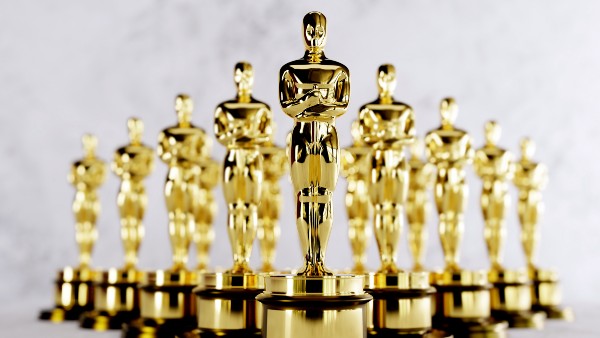Academy Awards ratings rebounded from historically low ratings of last year (probably due to a regrettable incident we've all heard too much about, at this point), yet this year’s ceremony still came in at the second-lowest ratings ever.
Scott Feinberg, the senior awards analyst for The Hollywood Reporter, wrote some interesting suggestions to revamp the ceremony.
I don’t claim expertise in organizational structures (the bulk of Feinberg’s numbered points), but as a former collegiate athlete and current spiritual chaplain for the Los Angeles Dodgers, I was intrigued by his last point on learning from what televised sports gets right.
Here then are my own ideas about how the Oscars might emulate sports in what they get right and, in some cases, what they get wrong.
Connect with the Sundance Film Festival.
The Robert Redford-founded festival now boasts two Academy Award-winners this year: Best Picture in CODA and Best Documentary in Summer of Soul
I saw both films as part of my online package in January 2021, and CODA again when it landed on Apple TV streaming.
The coming-of-age film of a young lady (Emilia Jones) discerning between helping her deaf family in their fishing village business or heading to the Berklee College of Music became a movie I rooted for during awards season, much like I root for my favorite NFL team in the fall.
Unlike the Chicago Bears, CODA didn’t let me down.
EDITOR'S NOTE: Sundance and other film festivals have long offered ways for films made outside the major studio system to get seen by critics and the industry.
CODA -- a U.S./French co-production, based on a French-language film and shot on location in its setting of Gloucester, Massachusetts -- was acquired at Sundance, not by a major studio distributor, but a tech company's streaming service.
It's not the traditional route, but the old model of film production and distribution are likely now permanently disrupted.
And, CODA's success represents the kind of underdog story that American audiences love.
Don’t connect with the viewing public with at least one nominated film.
I actually appreciate when one radically secular, values-devoid film gets nominated for best picture each year.
Counter to my previous point, they become the film you root against throughout the season. One of my favorite parts of the NFL playoffs is watching what possible new way the Green Bay Packers can snatch defeat from the jaws of victory.
In film, this year it was The Power of the Dog, a painfully slow, dreadful film that died an even slower death by Oscar night.
Learn from four-year-cycle sporting events.
Four years between a specific season of the Olympics (summer or winter) and the same amount of time between soccer World Cups captures the casual fan who doesn’t watch every year.
Shutdown also proved the inverse of holding big events too often: the delayed Tokyo Summer Olympics running up against the Beijing Winter Olympics six months later might have created Olympics fatigue.
I’ve suggested this before, but perhaps the Oscars could return to a bi-annual event of its early years (1927-1933) and let the guild awards (WGA for writers, DGA for directors, etc.) exist as more of the annual ritual for the diehards.
From the Sundance experience the last five years, I’ve noticed good film years alternate with weak film years.
Looking at the last two years, it really takes 24 months to fill a category of ten (if that) truly great films: Sound of Metal, Promising Young Woman, The Father, Nomadland in 2021; Belfast, CODA, Nightmare Alley, Drive My Car in 2022.
Change up the scheduling.
Start the awards season with the Oscars instead of ending with it. If one follows the guild-awards pattern, you can make your picks in categories that historically line up with Oscar winners and make educated guesses in the couple of categories that don’t.
I won this year’s Family Theater Productions office pool in a tiebreaker by only missing two categories.
It’s like a March Madness bracket, where the schools win by straight seeds (no upsets). Where's the fun in that?
Changing up the order of the season could have Oscars voters casting ballots before the trends become obvious, thereby bringing some mystery and the possibility of surprises to the proceedings.
Mess with the order of categories during the live event.
It may have formerly made sense that the Academy Awards end with Best Picture.
But as a televised event, it’s a bit head-scratching. We watch TV because we like to see our favorite stars and athletes. If the winner is not my own team, I rarely watch the post-game presentation, where a commissioner presents the coach with the championship trophy.
The casual fan doesn’t recognize Best Director nominees. And even diehards don’t usually recognize producers who are designated to accept best pictures.
So, end with Best Actors and Best Actresses.
Last year, they presented Best Actor last, presuming the late Chadwick Boseman would take home a posthumous Oscar. Anthony Hopkins surprisingly (and deservedly) won instead, creating a rather bizarre ending as the winner wasn’t even attending in person.
That’s the unpredictability unique to live TV, while providing also for a true Hollywood ending.
EDITOR'S NOTE: Speaking of which, the Academy Awards, for better or worse, is LIVE. Like sports and news, the element of the unexpected keeps live events as one of the few things today's viewers will watch in real time.
Nobody wants a repeat of this year's incident, but if the Academy allows fear, political correctness and tradition to squelch spontaneity and fun, the Oscars may continue to be the one major live event that is consistently boring.
Image: Adobe Stock
Click here to visit USC film school graduate Father Vince Kuna’s IMDB page.
Keep up with Family Theater Productions on our website, Facebook, Twitter, Instagram and YouTube.
